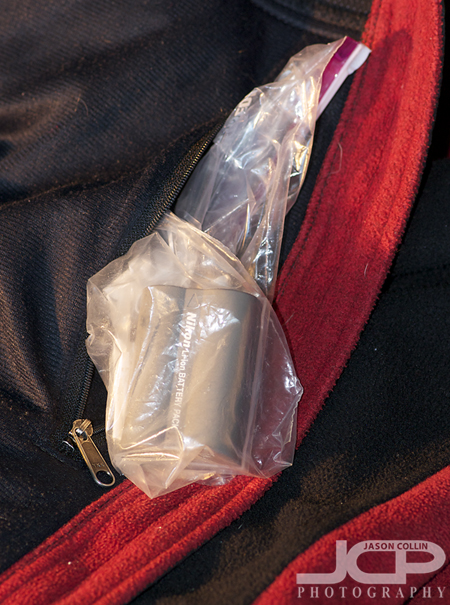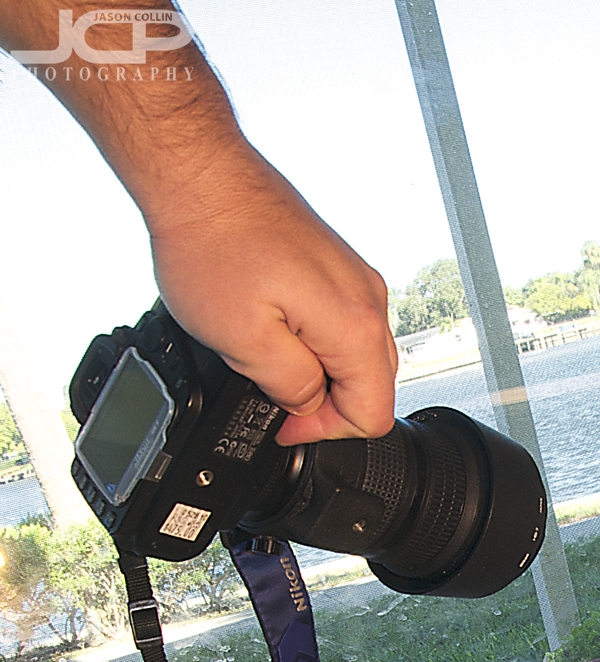 Eneloop rechargeable batteries hold their charge well, so I do not worry about leaving them in my camera bag for weeks.So you have a spare battery for your DSLR camera and even an extra set of batteries for your external flash. That's great! Are both sets of batteries fully charged right now? Often the last thing a photographer wants to do after shooting a 4-hour event or an 8-hour wedding when getting home is taking out the old battery charger and loading it up with drained batteries. Yet recharging your dead batteries right away is a photography tip I highly recommend. There are several reasons for this:
Eneloop rechargeable batteries hold their charge well, so I do not worry about leaving them in my camera bag for weeks.So you have a spare battery for your DSLR camera and even an extra set of batteries for your external flash. That's great! Are both sets of batteries fully charged right now? Often the last thing a photographer wants to do after shooting a 4-hour event or an 8-hour wedding when getting home is taking out the old battery charger and loading it up with drained batteries. Yet recharging your dead batteries right away is a photography tip I highly recommend. There are several reasons for this:
- What if you suddenly get a big job the next day?
This happened to me just last month. A contact at the Treasure Island Yacht & Tennis Club called me up saying there was an event going on right now that they wanted a photographer for. At the time I was on the other side of Tampa Bay, an hour away, and did not have any of my gear with me. I was still able to take the job though because there was still time for me to cruise across the Howard Franklin (traffic free at that time) grab my camera bag, and head to the yacht club. If all my batteries were not already charged, I would have had to of either shot conservatively over the 3-hour job (totally not ideal) or further delayed my arrival on the job site by stopping to buy some AA batteries at CVS.
- One less thing to worry about before shooting an all day wedding
In the days before shooting a long wedding (6 to 10 hours) there are a lot of things a wedding photographer has to make final checks on. Therefore, I do not want to have recharging all my batteries on that list as well.
- What if the job goes long?
Maybe the event planner underestimates the time they needed a photographer for. You were told it would just be an hour long job. Only one set of batteries was charged, but you knew that would be more than enough for just an hour of shooting. Then they want you to stay on for another two hours. It would be terrible to have to say no because you do not have the batteries to do it, or have to leave the site to get more batteries, assuming the piece of gear you need batteries for does not use proprietary ones.
- I'm not a pro photographer, should I be so strict about keeping my batteries charged?
Yes! Just like a wedding photographer the day before a wedding, a parent on the day before a big family day trip has a mile long checklist of things to get ready. Recharging batteries could easily get forgotten or not remembered in time. It is extremely wise policy for the hobbyist shooter to adopt as many pro photographer habits as possible. This is from personal experience. I used to not be as serious when just photographing my family and friends on day trips, etc, but then there were just too many "forgot the memory card," "left bracketing on," mistakes so I prepared to photograph those fun, personal events just like (almost) I would a paid professional event.
 Using an interior jacket pocket works best to keep your spare battery warm & chargedFor many reasons, I do not like cold weather. That is why I live in Florida. One photography related reason to not like cold weather is the effect is has on your DSLR's batteries. Cold weather drains batteries much faster than warm weather. If you live in a cold area, or live in a supposedly warm area (like Florida) but receive an unwelcome arctic cold front from Canada, this is a real problem for extended outdoor shooting. Even if you have spare batteries, if they are still exposed to the cold they will drain before you even put then into your DSLR. Is the inside of your camera bag warm enough? No! I recommend putting your spare batteries into a zip lock plastic bag and putting them into a jacket pocket that presses against your body. An interior chest pocket works best. Your body heat will help to keep the spare battery warm and greatly help its ability to hold onto its charge.
Using an interior jacket pocket works best to keep your spare battery warm & chargedFor many reasons, I do not like cold weather. That is why I live in Florida. One photography related reason to not like cold weather is the effect is has on your DSLR's batteries. Cold weather drains batteries much faster than warm weather. If you live in a cold area, or live in a supposedly warm area (like Florida) but receive an unwelcome arctic cold front from Canada, this is a real problem for extended outdoor shooting. Even if you have spare batteries, if they are still exposed to the cold they will drain before you even put then into your DSLR. Is the inside of your camera bag warm enough? No! I recommend putting your spare batteries into a zip lock plastic bag and putting them into a jacket pocket that presses against your body. An interior chest pocket works best. Your body heat will help to keep the spare battery warm and greatly help its ability to hold onto its charge. Use hand heat for the battery in your DSLRWhat about the battery in your DSLR? For that I would just try and keep my hand tightly covering the battery compartment area in between shots, preferably with two hands, though in the photo above I had to keep my right hand for using another camera to make take the shot. Try holding the camera close to your body as well.
Use hand heat for the battery in your DSLRWhat about the battery in your DSLR? For that I would just try and keep my hand tightly covering the battery compartment area in between shots, preferably with two hands, though in the photo above I had to keep my right hand for using another camera to make take the shot. Try holding the camera close to your body as well. 
